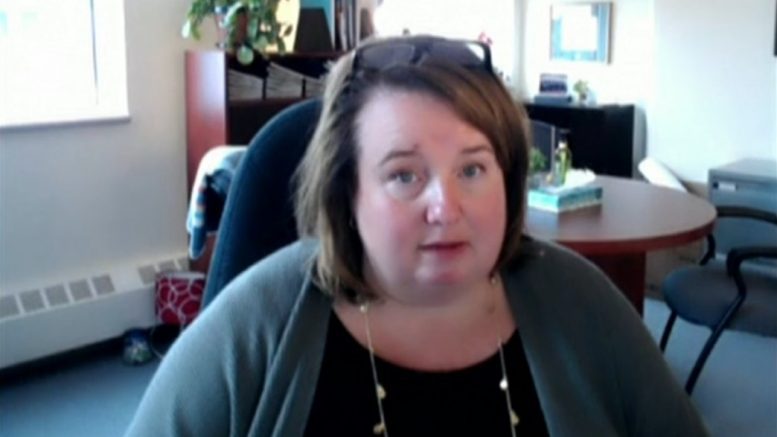Territorial health leaders say they’re committed to making changes and improving work conditions for nurses in the obstetrics unit at Stanton Territorial Hospital.
“We haven’t necessarily been able to act in all areas and on all concerns as quickly as some people would like to see,” said Kim Riles, the CEO of the Northwest Territories Health and Social Services Authority (NTHSSA).
“My strong commitment is that we will do what we need to do, to work together to repair relationships where necessary and to ensure that we can work collaboratively on solutions and improvements for everyone involved.”
Riles held a news conference with Julie Green, minister of Health and Social Services, and Jim Antoine, chair of NTHSSA’s leadership council.
Last week, the health authority announced only emergency births would take place at Stanton hospital between Dec. 10 and Feb. 21, due to a lack of staff. Non-emergency births are to take place in Edmonton.
Green said NTHSSA has worked with 71 clients so far to assess medical travel needs. At the Legislative Assembly, Green added that 13 families are above the medical travel high-income threshold and will need to co-pay, while the majority of other families either have their costs covered by employer insurance or non-insured health benefits.
Shift assessment
“We’re getting signals from many corners of the lagging morale, frustrations, fatigue, burnout,” said Riles during the news conference.
She acknowledged these factors have led to some nurses leaving the labour and delivery unit.
CKLB asked what NTHSSA is doing to incentivize nurses to return to the unit. Riles said there were a number of factors “within our purview to take some action on.”
She gave the example of re-introducing part-time shifts to the unit.
“That is something that we are certainly going to be moving forward with to see if we can attract some of those nurses who we hear may have some openness to being able to return to work in the area,” she said.
Green added, “Retaining the staff we have is as important or more important than recruiting new staff… People who are already here and have the relevant skill set, we would like them to be with us if at all possible.”
Both the minister and Riles mentioned there is an upcoming working group to assess the workload and staffing in the unit.
Green said three-quarters of the shifts in December would not have been covered, which led to the unit closing.
Staff levels in new year ‘favourable’
During the news conference, Green said the territorial government’s recruitment efforts have resulted in only four additional nurses being hired since June.
“We also issued a request for assistance from other provinces and territories with no new staffing generated from this source so far,” she said, “as the staff are also in high demand in their home provinces and territories.”
Despite these low numbers, Riles said the staff levels in the new year are looking “favourable.”
Asked to expand on what that meant, Riles said NTHSSA has been working to have short-term staff supplement regular shifts, some of the new nurses would be starting and one is returning from leave.
“We still will have vacancies in the new year … but we will be working to ensure the combination of short term casual staff, as well as some hires that will be coming on board will get us into a better position,” she said.





